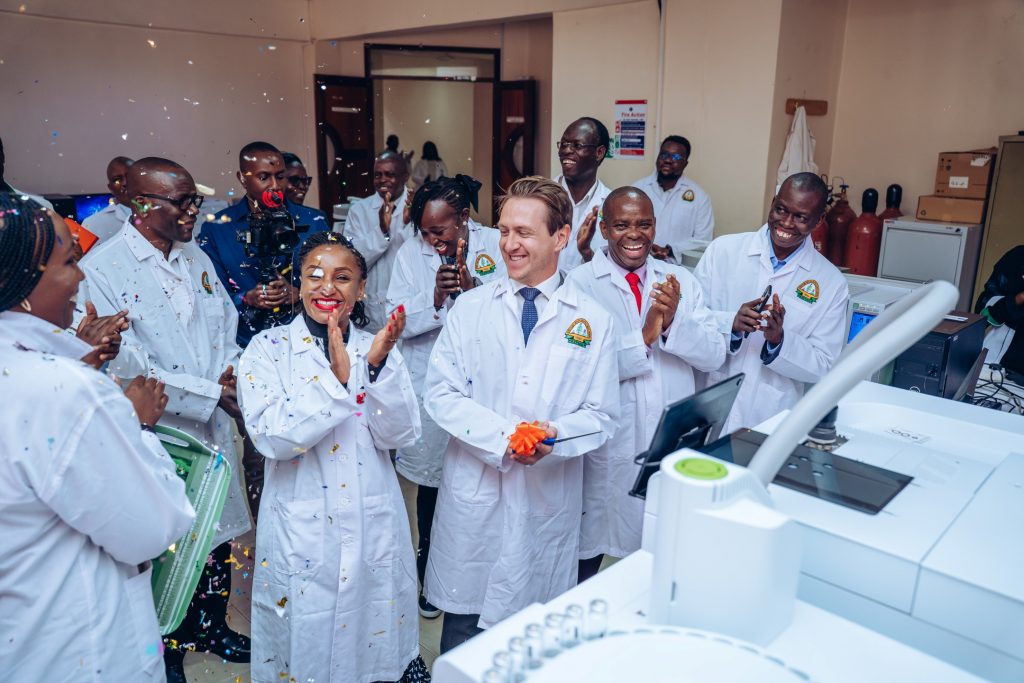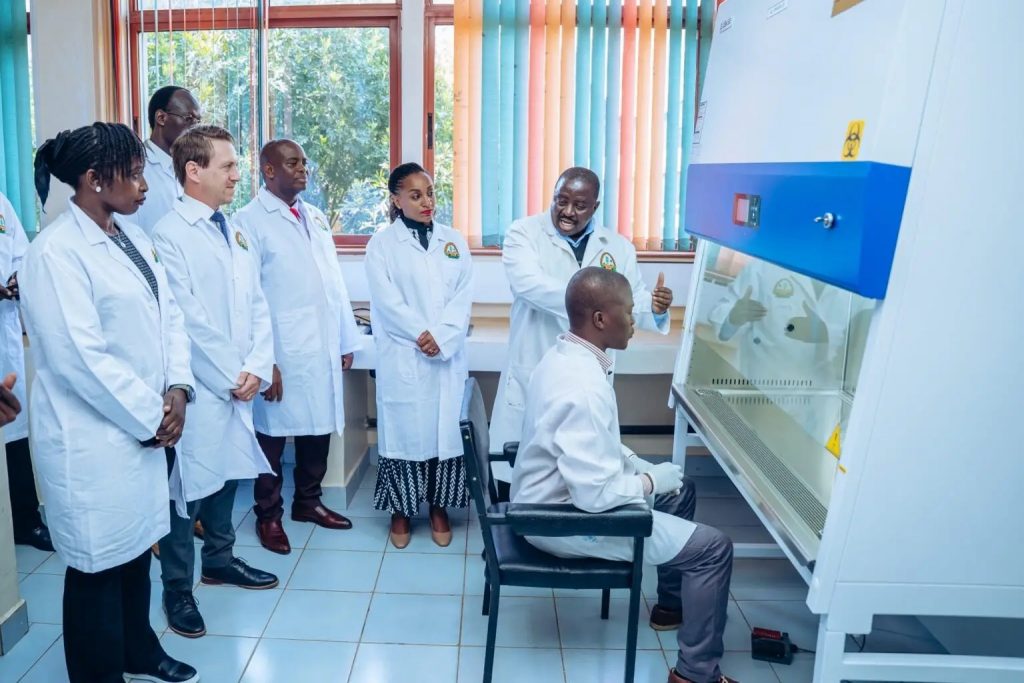October 2, 2025

Kenya’s horticultural industry recently received a significant boost with the handover of modern analytical equipment valued at Ksh. 152 million to the Kenya Plant Health Inspectorate Service (KEPHIS). This investment, funded through the British High Commission in Nairobi under the Regional Economic Development for Investment and Trade (REDIT) programme and facilitated by TradeMark Africa (TMA), is set to enhance Kenya’s capacity to meet stringent global sanitary and phytosanitary standards (SPS). Such improvements are critical for securing and expanding access to key export markets such as the United Kingdom (UK) and the European Union (EU).
Kenya’s horticulture sector is a major contributor to the national economy, exporting 216,429 tonnes of horticultural produce worth $309.4 million, according to the Central Bank of Kenya. Despite this success, exporters face persistent challenges related to meeting increasingly strict food safety and quality requirements. Key obstacles include pesticide residue limits, microbial contamination issues, and lengthy testing procedures that increase costs and raise the risk of market rejection.
The newly provided equipment will improve KEPHIS‘s analytical capacity by increasing sample throughput by 60% and reducing testing turnaround time by 50%. This enhanced efficiency facilitates faster clearance of horticultural commodities, reducing delays and costs while boosting confidence among importing markets regarding the safety and quality of Kenyan produce.
Daniel Wilcox, Economic Counsellor at the British High Commission in Nairobi, emphasized the partnership’s value: “The UK and Kenya are working together to provide Kenyan and international businesses what they really need; confidence. This equipment will accelerate clearance times, reduce costs related to delays and testing, and ultimately help grow our economies. The UK and Kenya are going far and going together.”

This latest investment specifically targets a persistent barrier to Kenyan horticulture exports: compliance with tough SPS standards demanded by global markets. These standards are non-negotiable for markets such as the UK and EU, whose consumers and regulators increasingly insist on safety, traceability, and sustainable practices.
Lillian Mwai, Kenya Country Director at TradeMark Africa, highlighted the strategic role of the investment: “By equipping KEPHIS with advanced analytical systems, we strengthen Kenya’s capacity to deliver faster and more reliable conformity assessments. This aligns directly with TMA’s mission to reduce trade costs, expand market access, and improve the competitiveness of African exports. For Kenya, it reinforces its reputation as a trusted supplier of safe, high-quality produce and supports export-led growth.”
KEPHIS Managing Director Prof. Theophilus Mutui underlined the organization’s mandate and how the new equipment enhances its role: “KEPHIS safeguards plant health and ensures that Kenyan agricultural inputs and produce meet national and international standards. The modern analytical equipment enhances our service turnaround time, broadens the range of tests we can perform, and strengthens confidence in Kenya’s compliance with global SPS requirements. This investment supports farmers and exporters in accessing high-value markets and contributes to Kenya’s goal of food security and safe trade.”
The Kenya Flower Council CEO Clement Tulezi noted the importance of perception in global markets: “For Kenya’s fresh produce, perception in the global marketplace is as important as production. Buyers want assurances that what reaches them is safe, compliant, and of the highest quality. This new equipment enables us to back our promises with data, giving proof that Kenyan exports meet international SPS standards. Such investments reassure markets like the UK and EU, strengthen competitiveness, and firmly position Kenya as a reliable supplier of horticultural products.”
The impact of this intervention is far-reaching. By enhancing SPS compliance, it will help reduce rejection rates of Kenyan produce while ensuring maximum residue limits and other regulatory thresholds are met. This contributes to protecting thousands of jobs along the horticulture value chain, from farmers and exporters to transporters and service providers. Ultimately, the investment supports Kenya’s ambition to become a global leader in safe, high-quality horticultural exports, powering sustainable economic growth through enhanced trade relations with key partners such as the UK.
This latest collaboration between Kenya and the UK, facilitated through TradeMark Africa and the REDIT programme, exemplifies how targeted support in trade facilitation and quality assurance can address critical bottlenecks to market access. It also underscores the increasing importance of science-driven, data-backed trade compliance in enabling African producers to compete effectively in demanding international markets.
Through continued partnerships, investments in technology, and improvements in conformity assessments, Kenya’s horticulture sector is poised to build on its export successes, reduce trade costs, and meet the evolving demands of global consumers for safe, sustainable, and high-quality produce.
This strategic boost in Kenya’s SPS compliance capacity will help secure the country’s horticultural export edge, reinforcing its reputation as a dependable supplier in top markets and contributing to broader economic development and food security goals.
SOURCE: TRADEMARK AFRICA
